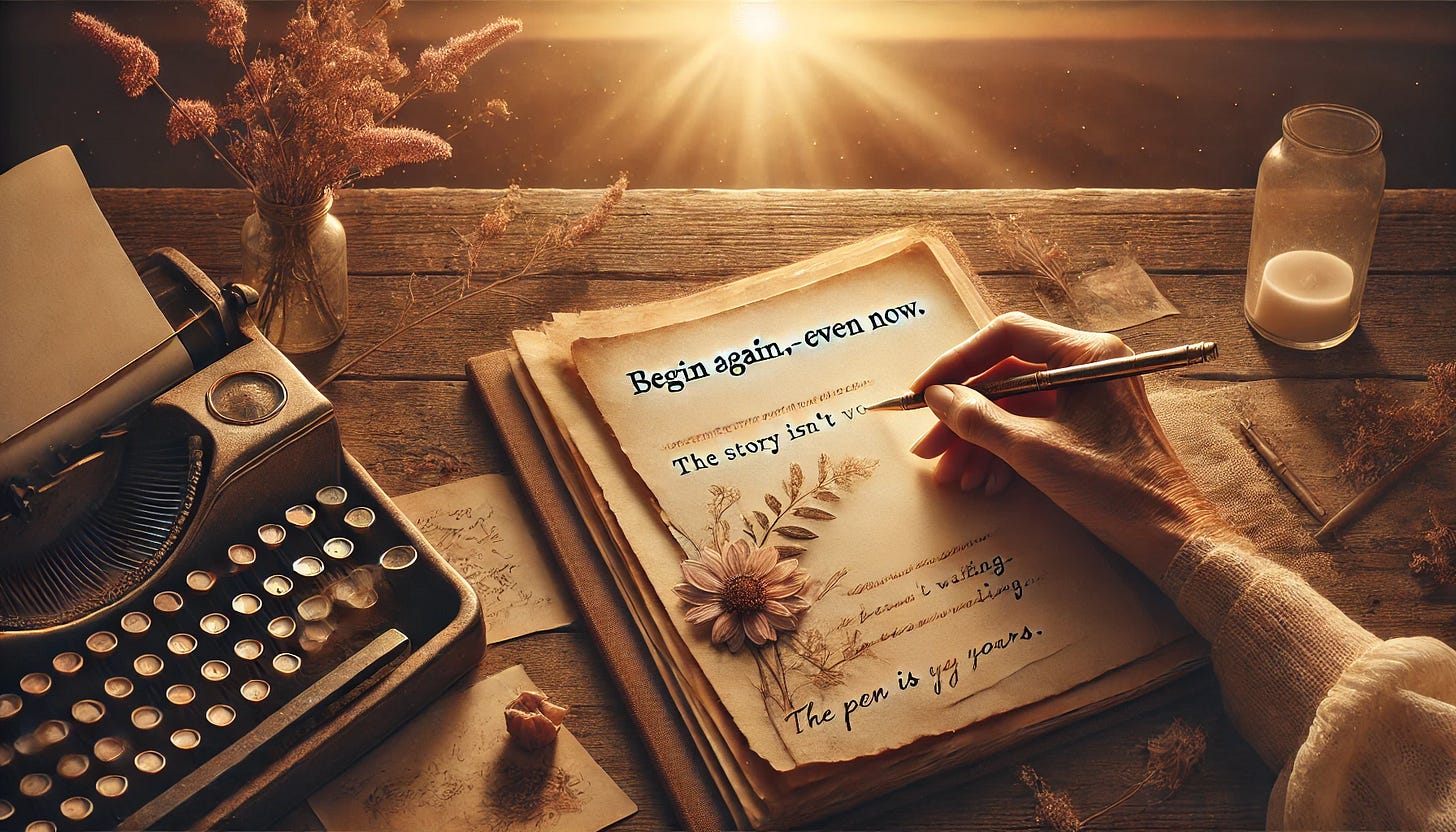The desert evening had that soft hum of endings. The clink of mugs on the veranda table, the flicker of candles trying not to go out, the kind of silence that only comes when friends are comfortable enough not to fill it.
Riley placed the letter in the center of the table, as if it belonged to all of them. “I wrote this to Marisol the week I left Vermont,” she said. “I never mailed it.”
The words hung there like an unfinished sentence.
Quinn reached for her glass. “Funny thing about letters. They carry us forward even when they don’t move at all. I remember when you showed up in Hawaii that week, silent as stone, carrying words you wouldn’t let out. I thought, someday she’ll open that envelope.”
Val smoothed the corner of a napkin. “I’ve been thinking how many things I tucked away, too. Old drawings of plants—I told myself they were just sketches, not worth keeping up. But when I pulled them out again, I realized they were pieces of me I’d hidden because life demanded other things.” She looked up, eyes shining. “We don’t just tuck away paper. We tuck away whole chapters.”
Skylar leaned in. “I did the same with my garden. I collected ideas from Spain, France, Morocco, all those years of travel. Notebooks full. And I kept telling myself, ‘someday.’ Well, someday finally came. I’m building a heritage garden now. Not to prove anything, just to claim the joy I delayed.”
Raven gave a low laugh. “And here I thought I was the only one caught between what was and what could be. Every time I travel, I redraw the plans for the training center here at home. Maybe rewriting isn’t about ambition at all. Maybe it’s about giving ourselves permission to stop running.”
Ben had been listening, quiet as usual. He set down his mug. “When my wife died, I thought that was the end of my story. But grief is its own kind of unsent letter. You carry words you can’t say anymore. For years I clung to a voicemail of hers. The day I deleted it, I thought I was erasing her and us. Turns out, I was making space. I finally heard myself laughing for the first time in what feels like forever.”
The group fell silent, letting the canyon speak for them. The stars blinked sharp and steady overhead.
Riley finally said, “Maybe rewriting isn’t erasing at all. Maybe it’s widening the margins so there’s room for more than we thought.”
The others nodded. Not in agreement, but in recognition.
On the Inside
As the friends shared their stories, I thought of the drawers and boxes many of us keep. The old journals, folded letters, photographs we can’t quite throw away. They’re not clutter. They’re quiet reminders that our stories are still alive, waiting for us to notice them again.
Rewriting doesn’t mean discarding who we were. It means allowing the younger self who drew, planted, dreamed, or stayed silent to hand us the pen, brush or trowel again.
I see this in the women of Echo Canyon, and I see it in us. The chance to claim the pages we thought were done. The courage to re-write our own unfinished sentence.
Moving Forward
We don’t have to start from scratch. We can begin with what’s been waiting; sketches, gardens, words unsent, dreams postponed. There is no too late. Only the margin asking to be widened.
What does this remind you of?
Is there something you once tucked away—a letter, a sketch, a plan—that still tugs at you? What new line could you add beside it now?
Thanks for reading!
Marylee
Find what you tucked away. Start there.




Beautiful writing ❤️